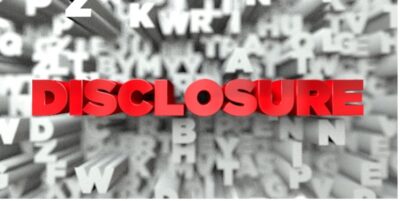BIS Unveils Enhanced Voluntary Self Disclosure Protocols
By: Adrienne Braumiller, Founding Partner, Braumiller Law Group
On January 16, 2024, the Bureau of Industry and Security (BIS) under Assistant Secretary for Export Enforcement, Matthew Axelrod, disclosed significant enhancements to the process for Voluntary Self-Disclosures (VSDs) related to the Export Administration Regulations (EAR). These adjustments are strategically designed to streamline export control compliance for U.S. governmental bodies, the commercial sector, and academic entities.
Accompanied by a Memorandum from the Office of Export Enforcement (OEE), these updates are now integrated into the BIS VSD online information portal.
A VSD is a process encouraged by BIS for parties who suspect that they may have violated the Export Administration Regulations (EAR), which are U.S. export control requirements. By submitting a VSD, parties demonstrate their commitment to compliance and provide valuable information to the BIS regarding potential violations.
When a VSD is received, BIS conducts a thorough review to assess whether violations of the EAR have occurred. If violations are identified, the appropriate corrective actions are determined. Detailed information on how to submit a VSD can be found in Section 764.5 of the EAR.
BIS strongly encourages that VSDs be submitted electronically to the email address [email protected]. While hard copy filings are not mandatory in addition to electronic submissions, it is important to note that delays in receipt and processing may occur if only a hard copy VSD is submitted. Digital signatures are accepted by the BIS Office of Export Enforcement (OEE), provided they are made by an authorized official of the organization.
One of the most significant changes involves VSDs that are filed to address minor or technical violations where no aggravating factors are present. For these types of VSDs, BIS has implemented a “fast-track” resolution policy. This fast-track handling is restricted to cases lacking any serious compounding factors. This policy now allows for an abbreviated narrative account process for the submission of VSDs involving these types of violations.
The abbreviated narrative account process for minor or technical violations should include a notation stating, “Abbreviated Narrative Account,” the disclosing person’s name, a description of the suspected violations and their underlying cause, an explanation of why the violations are not considered significant or involve aggravating factors, and a description of any mitigating circumstances and remedial compliance measures taken.
For these specified VSDs, the necessity for a comprehensive five-year lookback has been modified; it is now conditional upon specific request from the OEE. Instead, parties can bundle multiple minor or technical violations into a single VSD submission on a quarterly basis. Examples of minor or technical violations include immaterial EEI filing errors, record-keeping issues due to physical damage or electronic corruption, or incorrect use of one license exception when other exceptions were available. Parties may itemize these violations in a list or spreadsheet format.
If the OEE suspects the presence of aggravating factors that were not disclosed, they may request a full narrative account from the submitting party, including a five-year lookback, along with accompanying documentation.
In cases where VSDs involve aggravating factors, parties are advised to conduct a thorough review of all export-related transactions where violations are suspected. The review should cover a period of up to five years prior to the initial notification. This review is consistent with Section 764.5(c)(3) of the EAR.
It is important to note that when submitting a VSD, parties may also request special permission from the BIS to engage in activities that would otherwise be prohibited. This request, known as a “Section 764.5(f) request,” or as a “GP10 waiver petition” can be made when parties need to store, use, transfer, service, or repair items subject to the EAR, even if there is a known violation. To request such permission, parties should formally submit the request on letterhead to the BIS Office of Exporter Services (OExS) via email at [email protected]. A copy of the VSD should be included with the request.
The OExS will review the Section 764.5(f) request, taking into account the licensing review policy related to the violation. The review time varies depending on the complexity of the request, and additional information may be requested if necessary. The OExS will work in consultation with the OEE to make appropriate decisions regarding the requests and ensure that items can be reintegrated into the lawful stream of commerce.
It is worth mentioning that any person, not just those submitting a VSD, can notify the OEE Director of a violation and request permission to engage in otherwise prohibited activities. The submission should include the same information required for a VSD, and it can be made through a confidential reporting form or via email at [email protected]. The request should be sent to the OExS in the same manner as a VSD, along with a copy of the disclosure associated with the request.
The OEE will not categorize a disclosure of a known violation as a VSD if the requester does not believe they potentially committed a violation and prefers not to have their request categorized that way. For parties seeking to return unlawfully exported items back to the United States from abroad, the OEE typically recommends authorization from the BIS for such reexports.
In conclusion, voluntary self-disclosure is strongly encouraged by the BIS for parties suspected of violating the EAR. It demonstrates a commitment to compliance and provides valuable information for the BIS to address potential violations. By following the appropriate procedures outlined in the EAR, parties can ensure their VSD is properly submitted and reviewed, leading to the appropriate corrective actions and resolutions.
Additional policy guidance on VSDs can be found through the links below:
Dual-Track Processing of Voluntary Disclosures
Voluntary Self-Disclosures and Disclosures Concerning Others
Further Enhancements to our Voluntary Self-Disclosure Process

























